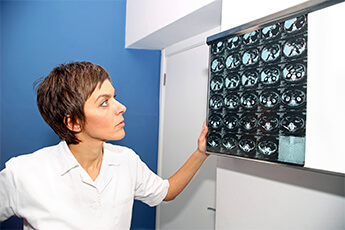Kidney cancer immunotherapy side effects, safety, stats & more

Kidney cancer immunotherapy uses your immune system to fight cancer. Immunotherapy drugs take advantage of naturally occurring molecules found in cancer cells, called tumor antigens, to target cancer cells and attempt to kill or limit them with your body's immune system.
In this guide, you'll learn how immunotherapy for kidney cancer feels for patients, information about side effects and adverse reactions, what studies say about its safety, and how it compares to other treatments in terms of adverse events.
In the Inspire Kidney Cancer Community, members share their personal experiences of living with renal cancer and how to find support. This content should not be used as a substitute for professional medical advice, diagnosis, or treatment. As always, consult with your doctor before trying any new treatments or medications.

Types of immunotherapy for kidney cancer
The most common type of kidney cancer is renal cell carcinoma (RCC), accounting for about 90% of kidney cancer cases in adults. Other types of kidney cancer are more rare, including transitional cell carcinomas and renal sarcoma.
Immunotherapy can be used to treat all of these forms of kidney cancer. The following types of immunotherapy are available for kidney cancer patients:
cytokine therapies (administering inflammatory compounds with anti-tumor properties, known as cytokines)
monoclonal antibodies (treatment with immune proteins that target specific types of cancer cells)
immune checkpoint inhibitors ICIs (compounds, which are often monoclonal antibodies, given to help reverse cancer-induced immune suppression and help your body fight cancer)
combination immunotherapy (combining different types of immunotherapy, or combining immunotherapy with other types of cancer treatment).
Kidney cancer immunotherapy is a relatively new option that has revolutionized kidney cancer treatment for many patients.
However, there are so many new immunotherapy options that making informed choices can be very overwhelming for kidney cancer patients — and even for their medical teams.
Side effects of immunotherapy for kidney cancer
While immunotherapy is often effective for kidney cancer, side effects and other types of adverse events may occur, including:
immune toxicity affecting the normal functioning of the skin, gut, endocrine system, lungs, muscles, or skeletal system (relatively commonly)
immune toxicity that harms the cardiovascular system, blood cells, kidneys, nervous system, or eyes (more rarely)
inflammation, pain, swelling, itching, or bleeding of tissues
deficiencies or excess levels of electrolytes in blood, or problems relating to pH imbalance of the blood or organs, such as acidosis.
problems with sleeping, eating, or other daily activities that are caused by pain or other side effects
Patients who are experiencing side effects from immunotherapy may also receive additional drugs to help control the immune system, reduce damage from immune toxicity, or treat unpleasant symptoms.
While kidney cancer treatments can be lifesavers, they also cause side effects. You may experience treatment side effects while getting the treatment or months or years after treatment ends. Learn more.
Is immunotherapy for kidney cancer safe?
The majority of adverse events and side effects that occur from kidney cancer immunotherapy are mild to moderate in severity.
However, serious and life-threatening events are also reported in immunotherapy studies, and treatment-related deaths occur in up to 2% of kidney cancer patients given immunotherapy (varying by specific treatment).
The 5-year survival rate for kidney cancer, when detected early and treated with appropriate therapies, is 93%, and the overall survival rate is 75%.
Not all kidney cancer patients are offered immunotherapy. In many cases, it's provided as a second-line therapy when another treatment fails to halt the growth of cancer or when tumors come back after treatment.
Immunotherapy may also be given as a first-line treatment for advanced metastatic kidney cancer that has spread to other parts of the body — often as a result of late detection, which gives the cancer a chance to migrate before it is treated.
To sum up, although serious side effects can occur with immunotherapy, these treatments may still be safer for some individuals, relatively speaking — that is, likelier to successfully treat certain types of kidney cancer and extend patients' lives — compared to doing nothing or using conventional treatments.
What does immunotherapy feel like?
Most medications used for kidney cancer immunotherapy are given by an IV injection, IV infusion, or taken orally.
Side effects and other adverse events are usually delayed for several weeks or even months, but are occasionally immediate.
Common side effects that occur during immunotherapy for kidney cancer are as follows:
local pain, itching, or rash at the injection or infusion site
fever, chills, or flu-like symptoms
headache
coughing
fatigue
decreased appetite
nausea
vomiting
diarrhea
constipation
weight loss
You may want to tell your medical team about any side effects you experience. Some evidence suggests addressing side effects early improves the overall treatment experience of immunotherapy patients.
While most side effects are temporary, some patients experience long-lasting adverse effects from immunotherapy.
Want to connect with other people living with kidney cancer and learn from others' firsthand experiences with immunotherapy and other treatments? Visit the Inspire Kidney Cancer Community today.
Immunotherapy side effects versus other kidney cancer treatments
Compared to other kidney cancer treatments, side effects from immunotherapy tend to have a delayed onset but may last longer.
Chemotherapy is a common cancer treatment that targets fast-growing cancer cells. However, normal cells are also damaged by chemotherapy, resulting in side effects such as:
hair loss or changes in hair growth
loss of taste and smell
disruption of the lining of the stomach or gut
Radiation therapy or radiotherapy uses X-rays or radioactive particles to destroy cancerous cells. Like chemotherapy, it can also damage healthy cells. Common radiotherapy side effects include:
hair loss
fatigue
nausea
skin irritation
Finally, surgeries like partial or radical nephrectomy (kidney removal) are often used to treat kidney cancer. The goal of kidney cancer surgery is to remove tumors or cancerous tissues from the patient's body.
Like other treatment options, kidney cancer surgery also comes with risks and side effects, which include:
pain
physical and psychological stress
fatigue
swelling
risk of infection
bleeding
Because of the large number of new treatments available today and the wide range of individual differences among patients, it is currently difficult to make direct comparisons of the side effects between different kidney cancer treatments.
Kidney cancer occurs when abnormal cells in one or both kidneys begin to grow out of control. About 74,000 people are diagnosed with kidney cancer in the United States each year, making it one of the 10 most common cancers. Learn more.
Who should consider immunotherapy for kidney cancer?
For most kidney cancer patients, immunotherapy is not offered as a first-line treatment. In other words, most doctors don't provide immunotherapy unless they've already tried other treatments, or in cases where patients have certain limitations that would make other therapies unsafe or ineffective.
However, kidney cancer immunotherapy is sometimes given as a first-line treatment for advanced, metastatic kidney cancer — when cancer cells have spread outside the kidneys, making them more challenging to treat.
Immunotherapy for metastatic kidney cancer may be given as a standalone treatment or a combination therapy with two or more drugs, or with other cancer therapies.
Patients without metastatic cancer are more likely to receive more conventional kidney cancer treatments initially, which include:
chemotherapy
radiotherapy
surgery (like nephrectomy)
other targeted therapies
If these first-line therapies don't work, or if the cancer returns later on, doctors might recommend immunotherapy as a second-line treatment.
Many people who have kidney cancer respond well to the surgical removal of the tumor or the entire diseased kidney (a nephrectomy). But if you’re not a candidate for surgery or the treatment doesn’t work for you, your doctor may consider other kidney cancer treatment options like immunotherapy. Learn more.
Sources
Disclaimer
Member comments are lightly edited for length and to remove identifying information but are otherwise reproduced as they appear in the community as part of public posts.
This content is for general informational purposes only and does not necessarily reflect the views and opinions of any organization or individual. The content should not be used as a substitute for professional medical advice, diagnosis, or treatment. Please consult your healthcare provider about any questions you may have regarding a medical condition.




